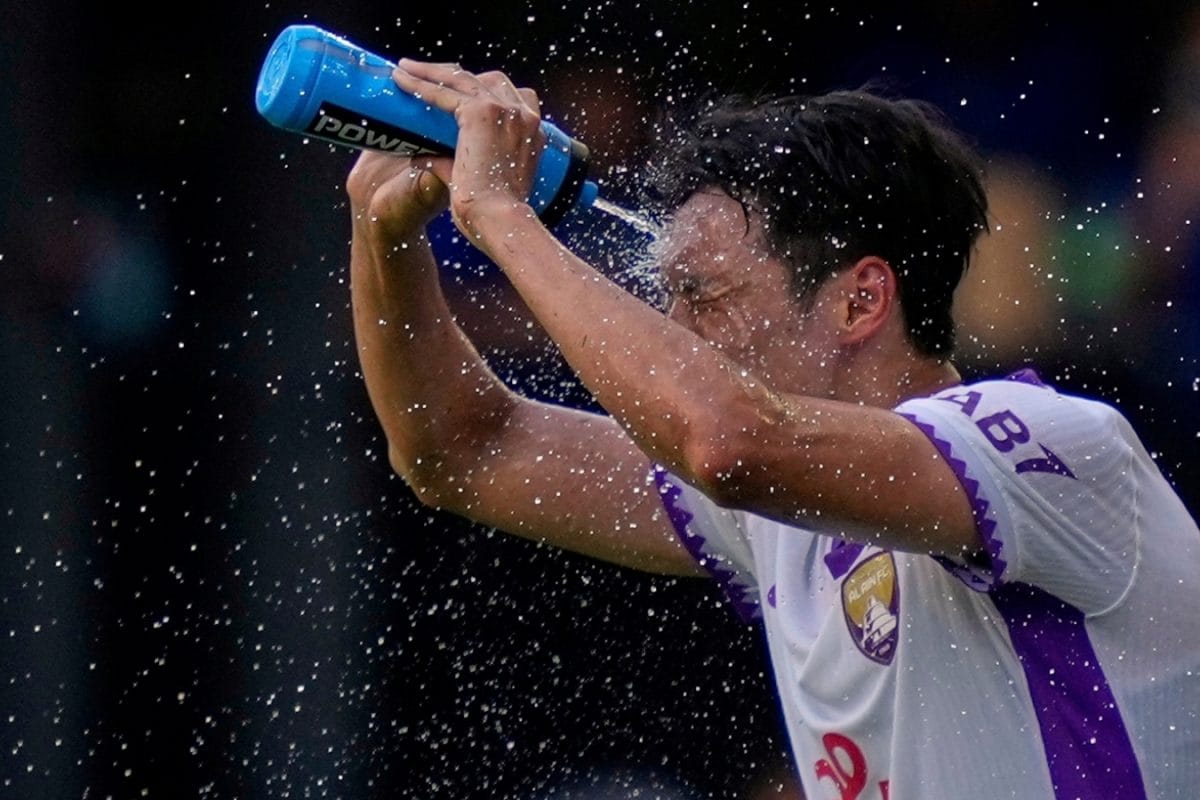

FIFPro, the global footballers' union, is actively exploring potential changes to match regulations to better protect players from the increasingly harsh realities of extreme heat during competitions. These considerations include extending halftime breaks to 20 minutes and implementing more frequent cooling breaks throughout matches.
The impetus for these discussions stems from the severe conditions encountered during the ongoing Club World Cup in the United States, where a significant heatwave has challenged athletes across the 11 host cities. These challenges have prompted FIFPro to issue warnings about the escalating risks associated with heat stress at upcoming World Cups.
Specifically, FIFPro's medical director, Vincent Gouttebarge, has suggested extending halftime breaks from the standard 15 minutes to 20 minutes as a means of helping players regulate their core body temperatures in high-heat conditions. Furthermore, the organization is advocating for cooling breaks to be implemented every 15 minutes, a significant increase from the current protocol of one break around the 30th minute of each half. FIFPro believes that more frequent, shorter breaks, in addition to the breaks in the 30th and 75th minutes, would be more effective, as athletes can only process a limited amount of water (approximately 250ml) every 20 minutes.
FIFPro's assessments of heat risk rely on the Wet Bulb Globe Temperature (WBGT), a comprehensive metric that considers temperature, humidity, solar radiation, and wind speed to estimate the environmental conditions affecting the body's cooling ability. According to FIFPro's guidelines, matches should be postponed or rescheduled when the WBGT exceeds 28 degrees Celsius to safeguard player health. This is a more conservative threshold than FIFA's current standard, which mandates cooling breaks when the WBGT surpasses 32 degrees Celsius.
Alexander Bielefeld, FIFPro's director of policy and strategic relations, emphasized the need to prioritize player health and safety over commercial interests when making decisions about match scheduling. He noted that while FIFA has been responsive to concerns raised during the Club World Cup, the organization had not heeded FIFPro's advice to postpone kickoff times on the hottest days. According to FIFPRO, several Club World Cup matches, including Paris Saint-Germain vs. Atletico Madrid and Chelsea vs. ES Tunis, should have been rescheduled to earlier times based on their WBGT recommendations.
Looking ahead, FIFPro has identified six of the 16 host cities for the 2026 World Cup in North America as being at "extremely high risk" for heat-stress injuries. These cities include Atlanta, Dallas, Houston, Kansas City, Miami, and Monterrey, even though some have stadiums with air conditioning. The concerns extend to the 2030 World Cup, which will be co-hosted by Spain, Portugal, and Morocco, where many stadiums lack adequate cooling infrastructure and summer temperatures often exceed 38°C.
In light of these challenges, FIFPro is urging FIFA to adopt a more proactive approach to heat mitigation, including implementing the proposed changes to halftime and cooling break protocols. The union has also called for better-shaded benches for substitutes and increased availability of hydration. While acknowledging the logistical and commercial complexities of rescheduling matches, FIFPro maintains that player safety must be the paramount consideration.
These recommendations align with FIFPro's broader efforts to address player workload and ensure adequate rest and recovery periods. The organization has been advocating for mandatory 28-day breaks, mid-season respites, and specific work limits for young players. FIFPro has also filed a lawsuit against FIFA, alleging abuse of position and violations of European competition law through calendar expansion.